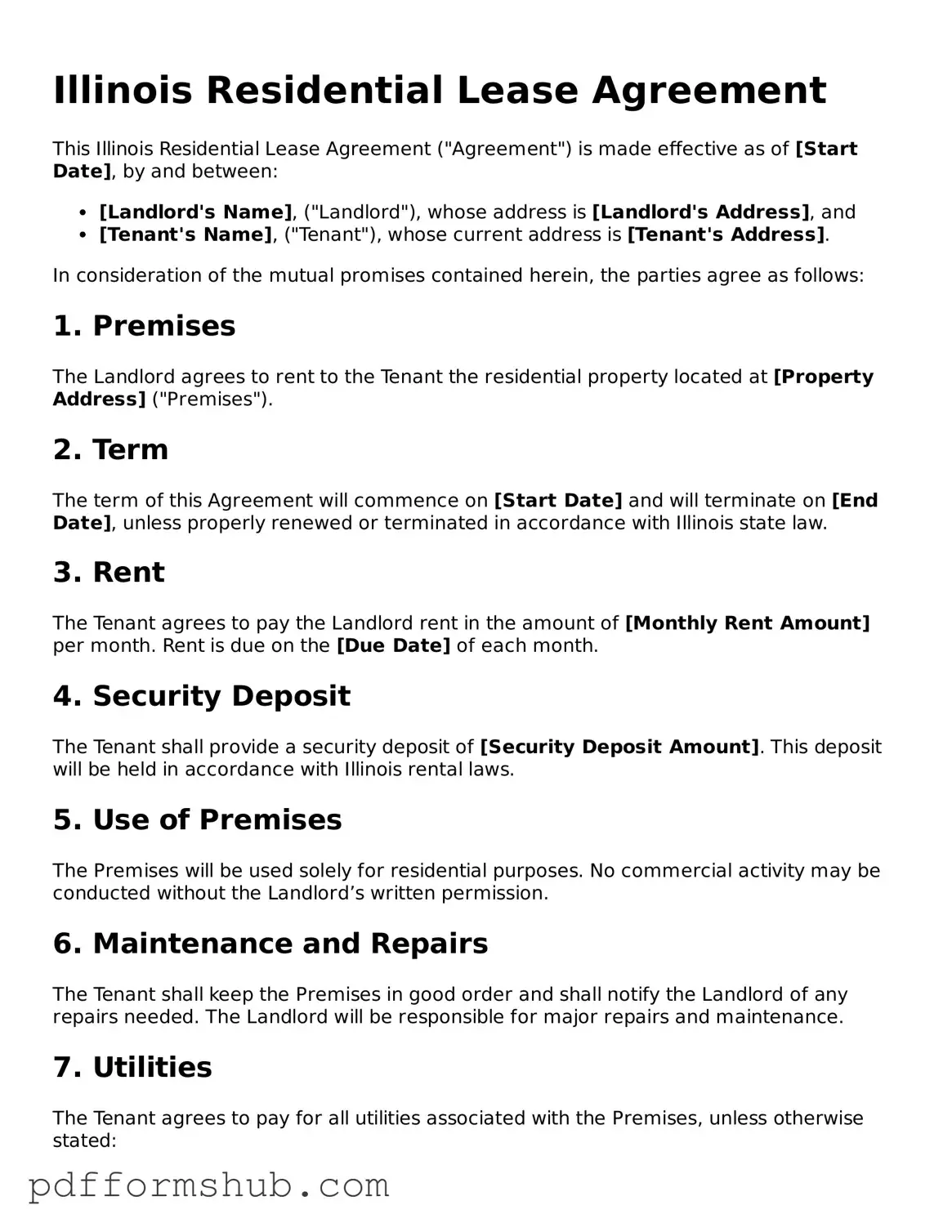Attorney-Verified Residential Lease Agreement Form for Illinois State
The Illinois Residential Lease Agreement is a legally binding contract between a landlord and tenant that outlines the terms and conditions of renting a residential property. This form is essential for protecting the rights and responsibilities of both parties, ensuring a clear understanding of the lease terms. Ready to get started? Fill out the form by clicking the button below.
Customize Form

Attorney-Verified Residential Lease Agreement Form for Illinois State
Customize Form

Customize Form
or
Free PDF Form
Short deadline? Complete this form now
Complete Residential Lease Agreement online without printing hassles.